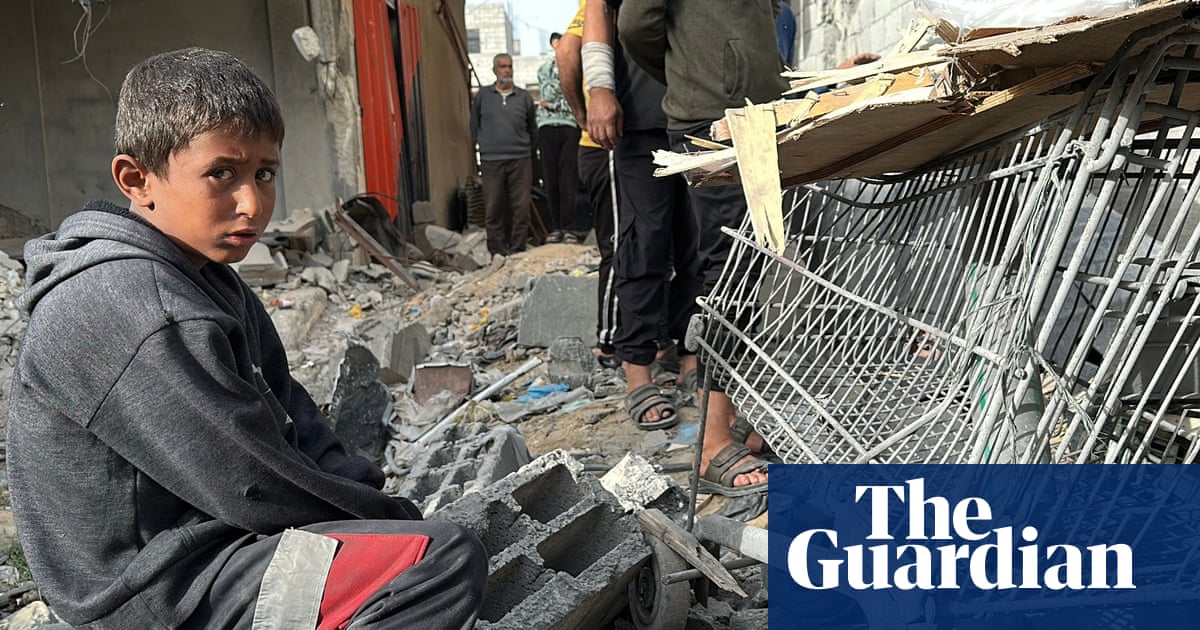Israel has quietly stopped designating areas of Gaza as humanitarian zones since it resumed its strikes on the Palestinian territory last month.
The move has heightened fears among aid workers for the safety of civilians sheltering in places previously deemed protected.
A small strip of land in southGazawas assigned by Israel in December 2023 as a “humanitarian zone” where civilians were told they could safely gather. The area was expanded last May to cover a larger area in south-west Gaza, including Khan Younis, Deir al-Balah and al-Mawasi.
Up to January, the humanitarian zone had been marked on maps that were posted online and dropped from the air by the Israel Defense Forces (IDF). More than a million people had flocked to the areas as a result.
The humanitarian zones were not entirely safe. Official figures showed they were hit by at least 28 Israeli strikes prior to January andan investigation by the BBCput the number as high as 97, with 550 people killed. The IDF accused Hamas militants of using the zones as protection and as a launch pad for attacks on Israeli troops.
Mention of the humanitarian zones has disappeared from maps since Israel’s ceasefire with Hamas collapsed in March. The IDF has resumed its airstrikes and seized swathes of land as a “security buffer zone” and the UN estimates that 70% of Gaza is now under either an evacuation order or is a “no-go zone”.
In meetings with aid agencies, the IDF and Cogat – the Israeli government unit coordinating policy in Gaza – have sidestepped questions about humanitarian zones, according to a senior international official who asked not to be named in order to speak freely.
The source added: “[The Israeli authorities] have not indicated if they will reinstate some of the humanitarian zone designations. There’s a logic there: if they don’t reinstate the humanitarian zones, they therefore can’t guarantee security of movement within that zone for aid workers or civilians.”
The IDF did not respond to questions on the issue.
Tens of thousands of Palestinians have continued to flock to al-Mawasi, a sandy area with few buildings, many in the belief it is still a protected zone. But the area has been hit by 23 airstrikes since the ceasefire ended, according to the UN.
Last week, two Israeli missiles struck refugee camps in al-Mawasi, setting fire to dozens of tents, many with women and children inside. The attacks killed at least 16 people and wounded many more. “Images of children burning while sheltering in makeshift tents should shake us all to our core,” said Catherine Russell of Unicef.
Nasser, a father of four, sought sanctuary with his family at al-Mawasi after their home in Deir al-Balah was wrecked last year.
“Mawasi was not really better,” said the 35-year-old accountant. “The conditions were crowded, hot, and dirty, there was nowhere to wash or have any privacy. Sometimes there were airstrikes on al-Mawasi when we were displaced there and they set the tents on fire. The Israelis told us to move again even inside the camp.”
The family went back home when the ceasefire was declared but Nasser said it was now clear to everyone in Gaza that nowhere was safe.
“We don’t know what to do,” he added. “I spent all day looking for clean water and firewood to make a fire to boil wastewater. But Mawasi is dangerous too, it has been targeted 20 times in the last month and there were many martyrs.”
The UN warned on Tuesday that Gaza was facing famine after more than 50 days of a total Israeli blockade on aid entering the territory. Also on Tuesday, Israel airstrikes killed 17 people, mostly women and children, according to Gaza’s health ministry.
Philippe Lazzarini, head of the UN agency for Palestinian refugees, described Gaza as a “land of desperation”.
“Hunger is spreading and deepening, deliberate and manmade,” said Lazzarini on Tuesday. He said the two million people of Gaza were “undergoing collective punishment” and he charged Israel with using humanitarian aid as “a bargaining chip and a weapon of war”.
His comments were echoed by Jens Laerke, spokesperson for the UN humanitarian agency OCHA, who told reporters on Tuesday: “It is true that right now is probably the worst humanitarian situation we have seen throughout the war in Gaza.”
